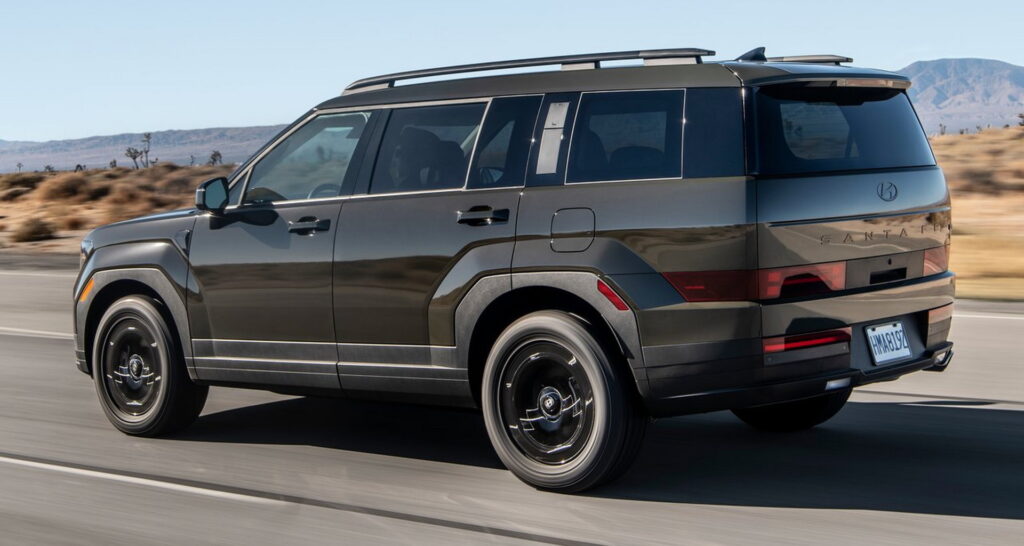- Hyundai just recalled 49,719 Santa Fe SUVs over airbag concerns.
- The problem with all of them rests in potentially faulty wiring.
- The airbags in question might go off randomly or not work when they need to.
Modern technology enables airbags to work as effectively as they do. Precise timing is key to their function. When that timing is off, their efficacy is greatly reduced. That problem is at the heart of a new recall from Hyundai involving nearly 50,000 SUVs.
The car in question is the most recent Santa Fe and that includes both the hybrid and non-hybrid versions. In April, Hyundai received a report that a rear seat side airbag inadvertently deployed. As of now, it’s identified eight similar situations here in the USA. On the flip side, it’s also possible for the airbag to not deploy when it’s supposed to.
More: Hyundai Genesis Coupes Could Lunge Forward, 3 Crashes Recorded
The problem happens when the passenger-side second-row bench seat folds. During that process, it can damage the main floor wire harness and cause both potential airbag issues. Hyundai believes that if damage hasn’t already occurred the harness might be salvageable though. It tells techs to inspect and properly secure the harness if they don’t find damage.
In other cases, where damage is evident, the automaker will replace it at no cost. Notably, the inspection and securing labor code calls for just 0.3 hours of labor. Replacing the wiring harness calls for 5.6. The funny part of this whole situation, if there is one, is that the remedy for non-damaged wiring harnesses is simply to zip-tie them so that they don’t move.

Technicians are required to take a photo of this section of wiring once they’re done too. That should add some peace of mind for those concerned that their airbags won’t work when they’re supposed to. It’s unclear at this stage how many of the 49,719 SUVs have this issue.
Hyundai notified dealers about the situation on July 26 and owners should receive a letter about it no later than September 23. Concerned owners can, of course, check their VIN number at NHTSA.gov or call their local dealer.





